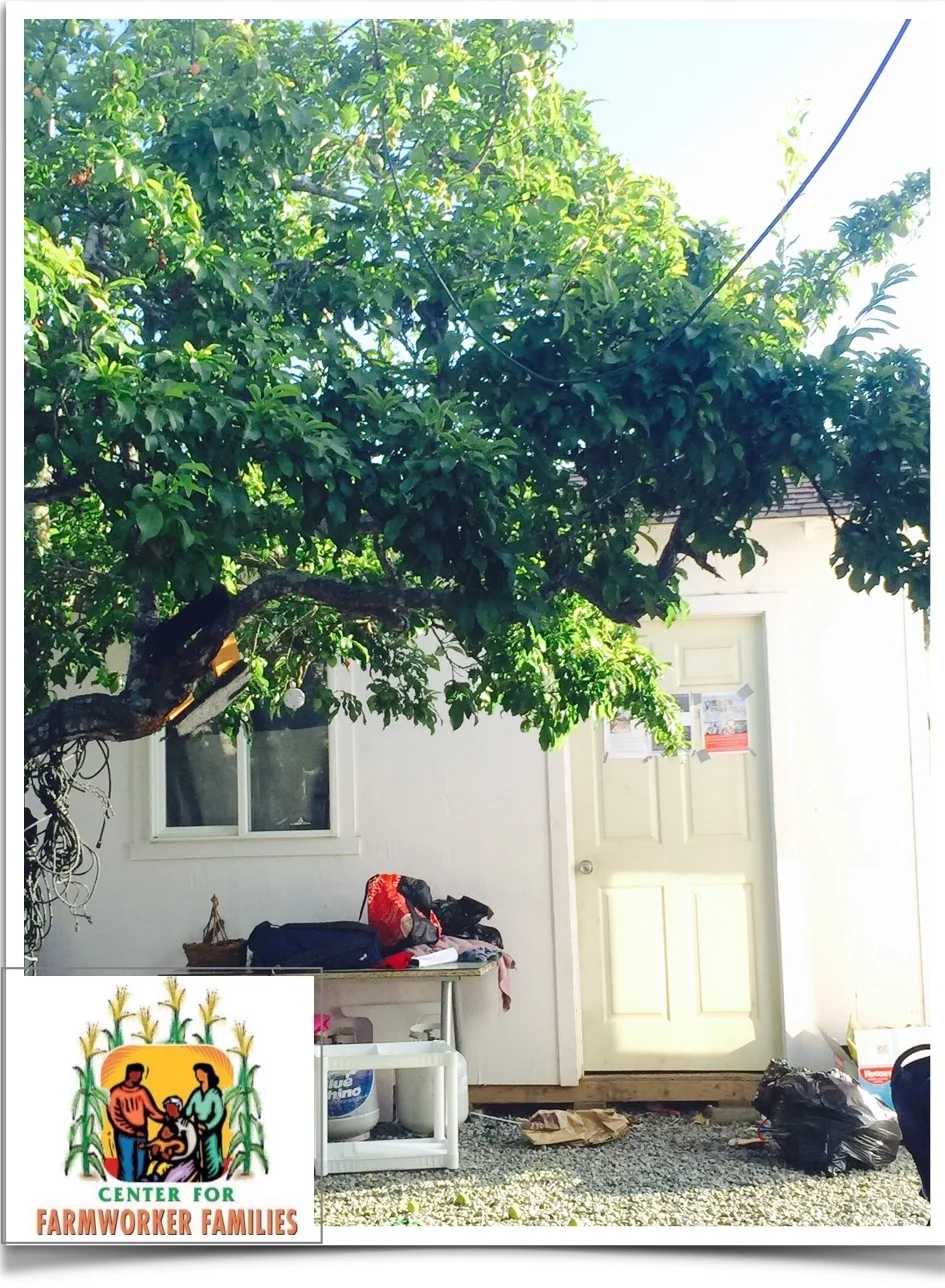Oaxacan Community Shed
Center for Farmworker Families works closely with Oaxacan community members living in several rural towns in Central California. As the most recent arrivals to Central Coast agriculture, Oaxacan farmworkers are the poorest farmworkers working in the region. They regularly endure racism and racist comments from other Mexican farmworkers. Three years ago we conducted a survey to determine the items that are most needed in the Oaxacan community. We asked a Oaxacan family that lives in NW Watsonville to manage an empty shed on their rental property. We learned that the most needed items include baby diapers in all sizes, baby wipes, paper towels, toilet paper, rice, beans, shampoo, bath soap, laundry detergent and dish soap.
Since then we stock the shed with these items at the beginning of each month. Diapers, baby wipes, paper towels, toilet paper, shampoo, soaps rice and beans are purchased to make sure the basic needs are met and that there is always food on site, so no one will go hungry. In addition, we supply the shed with donated clothing, household items, toys, and furniture. Once the shed is stocked, members from about 150-400 Oaxacan families visit the shed and are provided with needed items that they cannot afford to purchase with their meager wages. They all live in grinding poverty.
Over the past three years, the shed and the parking lot area in front of the shed have become a central location for meetings, transfer of important information affecting the community, meditation classes, English classes, math tutoring for school assignments, a Girl Scout Boutique project in which teen girls can acquire needed clothing for school, distribution of school supplies to children prior to the fall semester in August, and visits with people living in the region of Central California who want to contribute to the community. Flyers announcing tutoring, medical services, immigration rights, and children’s summer camp opportunities are posted on the shed door for all to see.
Why is the Shed Important?
Can any of us imagine living without soap and toilet paper? The issue is even more serious in the farmworker community. It is recommended that farmworkers undress before entering their households after work. Clothes worn in the field all day should never be worn in the home because of the significant number of children in farmworker family households that acquire cancer each year as the result of being exposed to toxic pesticides on their parents clothing when the parents return from work. Providing laundry and bath soap to farmworker households supplies farmworkers with the soaps necessary to rid their clothing and bodies of harmful pesticides before interacting with their children.
In addition to providing providing the basic necessities, the shed, as a central meeting location, provides a community meeting place for families to engage and to be connected with the larger community. Villages in rural Mexico are very tight-knit and interactive. Many rural Mexicans that travel to and live in the U.S. experience depression as the result of the loss of the community life they once enjoyed in Oaxaca. The shed and environs provides a location for community in which Oaxacan farmworker families can experience comradeship with others like themselves with the same ethnicity, origins and life circumstances; truly a way of forming bonds among Oaxacans and providing a sense of belonging.
What are the Goals?
The goals of the shed are aligned with the mission statement for the Center for Farmworker Families. The purpose of the Center for Farmworker Families is to promote awareness about the difficult life circumstances of binational families while proactively inspiring improvement in binational family life both in the United States and in Mexico.
We realize this purpose by engaging in activities including: Supporting projects in both Mexico and California designed to sustainably promote financial and nutritional well-being and independence.
The shed improves family life by supplying clothing and needed household and food items to family members. It also functions as a central location within the community for information transfer and local service updates and activities that enhance family and community life.
How Can You Support?
Monetary Donations. This helps us make sure we have enough money for the monthly purchase for the shed. If you would like to make a donation, you can donate here.
In-Kind Donations. We welcome donations of goods, such as clothing for all ages/sizes, in good condition, household items, toys, baby items, and even food. If you would like to make an in-kind donation, we have a drop off location in the Watsonville area.
To donate items, please fill out the form below and we will be in contact with the drop off locations.




